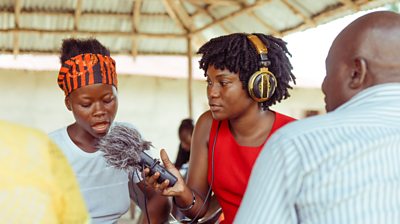Downloads
Research summary
Published: April 2022
����ý Media Action’s radio show ‘Wae Gyal Pikin Tinap’ (When a Girl Child Stands) aims to encourage dialogue between parents/caregivers and adolescent girls to help address socio-cultural barriers that prevent girls from attaining education. Research findings show parents and adolescent girls feel more open to discussion and better equipped to make safe and positive choices, around sex, relationships, and issues in general, after listening to the show.
In Sierra Leone, girls are more likely than boys to drop out of school - or to never attend school at all. They also have high rates of early marriage and early pregnancy. The Every Adolescent Girl Empowered and Resilient (EAGER) project, funded by the UK’s Foreign, Commonwealth and Development Office (FCDO), aims to empower girls aged 13–17 in Sierra Leone, who have never been to school or have dropped out. It helps them to acquire life skills and supports their transition into education, training, business or employment.
As part of this project, ����ý Media Action is producing Wae Gyal Pikin Tinap, a 30-minute magazine-style radio programme targeted at girls’ parents, caregivers and adults in the wider community. The programme is broadcast by 60 of our partner radio stations across the country. ����ý Media Action hopes to address socio-cultural barriers, to promote sustainable attitudinal change, and encourage and increase discussion and dialogue between adults and adolescent girls.
Research methodology
In July 2021, ����ý Media Action conducted its second wave of a qualitative longitudinal panel. The panel consists of listeners of Wae Gyal Pikin Tinap radio programme, living in different districts of the country both urban and rural. It includes families, parents/caregivers, and adolescent girls, who have dropped out of school, or who have never been to school.
Key findings
Participants liked listening to Wae Gyal Pikin Tinap and described the topics in the various episodes as ‘important’ and ‘educational’. The issues and challenges raised are areas that listeners stated they can relate to and are present in their everyday life.
Motivated to start family discussions - Participants said the programme has helped motivate them to have more family discussions. Both parents and girls indicated that they were able to come together and discuss the episode that highlighted that daughters should be listened to and guided by their parents so that they can make useful and valuable choices.
At first, I was afraid to sit with my mother but now I can sit with her, we talk and play. And she tells me sensible things and she advises me, and tells me what is good and bad, what I should do or should not do. It has really helped me”.
Discussing menstrual hygiene - Period poverty and lack of sanitary facilities is affecting girls and holding them back in education and elsewhere. The programme content aimed to help parents/caregivers understand that engaging with girls on these topics will help them to look after themselves better. This wave of research found that parents have reportedly learnt the importance of discussing hygiene practices in relation to menstruation. Mothers reported appreciating the episode on menstrual hygiene and said it had inspired them to discuss this topic with their girls.
Impact of Wae Gyal Pikin Tinap
Understanding sex and consent and supporting girls’ right to make safe, positive choices. programme created content aimed at encouraging parents/caregivers to support girls to make safe and positive choices, when it comes to sex and relationships. Parents and adolescent girls reported to now have a better understanding of giving and seeking consent (more generally, not only related to sex or marriage). The study found that participants have reportedly put these learnings into practice. Many of the adolescent girls expressed that after listening to the programme, they were able to understand what it means to give and seek consent.
Yes, like consent, about having sex, like if you go to a man and agreed at first and later changed your mind, the man should not force you, so all my sisters have learned a lot on that”.
Implications
While the study found that progress is being made in reaching people and promoting behavioural and attitudinal change, there are still challenges that prevent some listeners from acting on what they learn from the radio programme. Speaking openly about sensitive issues such as sex and menstruation is restricted due to religion and tradition. Furthermore, the fear of being stigmatised or mocked for challenging traditional practices, parents claim, makes it difficult to discuss these issues. The programme could look further to increase learning on how they have a good understanding of how to tackle this topic.
Find out more about the EAGER project here.
Our research library
-
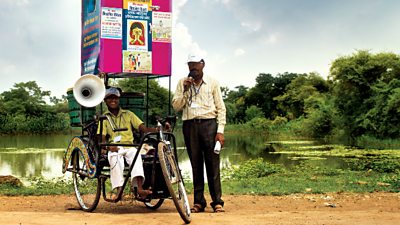
Long reads
Read our comprehensive research reports of the evidence behind our work. All of our publications are freely available to download. -
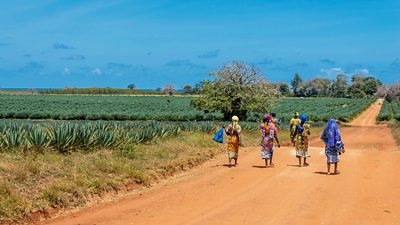
Short reads
At a glance, explore key findings and evidence behind our work. All of our publications are freely available to download. -
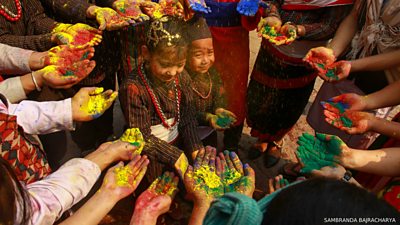
By country
Explore our findings and analysis country by country. All of our publications are freely available to download. -
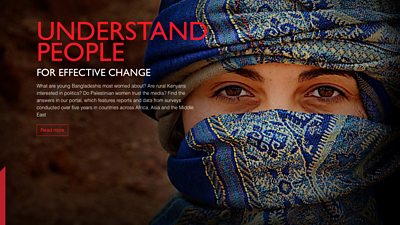 What are young Bangladeshi's most worried about? Are rural Kenyans interested in politics? Do Palestinian women trust the media? Find the answers in our data portal (last updated 2020).
What are young Bangladeshi's most worried about? Are rural Kenyans interested in politics? Do Palestinian women trust the media? Find the answers in our data portal (last updated 2020).
